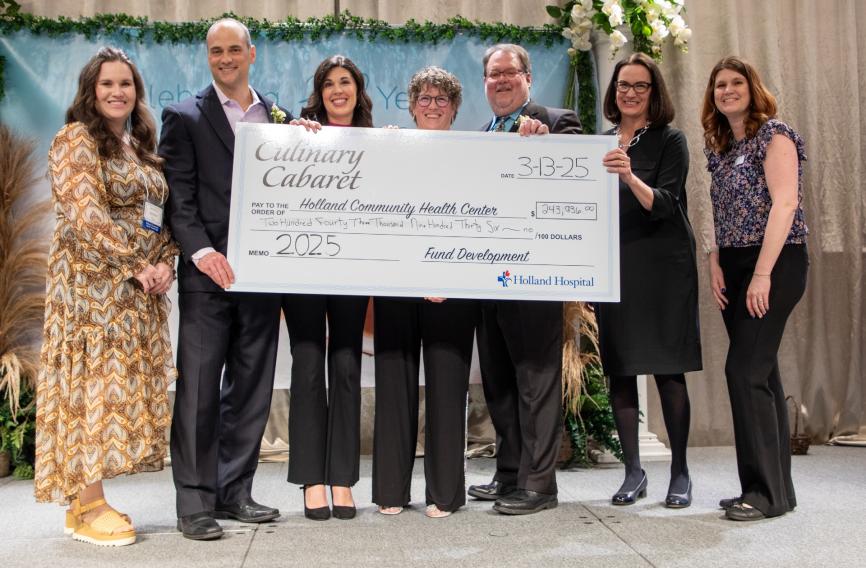Holland Hospital News and Stories
Holland Hospital managed websites use cookies to enhance your website experience. By navigating our websites, you agree to the Website Terms of Use. For more information, please review our Website Privacy Policy.
Displaying 1 - 10 of 488
Image

Image

Holland Hospital Nurse Earns Prestigious 2025 Michigan School Nurse of the Year Award
Media Releases
Image

Holland Hospital's Culinary Cabaret: Celebrating 30 Years of Holland Community Health Center
Media Releases
Image

Holland Hospital To Host Career Fair March 6, Offering Health Care Career Opportunities
Media Releases
Image

Holland Hospital Highlights Heart Health Awareness During American Heart Month
Media Releases
Image

Holland Hospital Invests in Future Health Care Leaders Through Annual Scholarships
Media Releases
Image

Image

Holland Hospital to Celebrate Grand Opening of Holland Hospital Primary Care — Hudsonville
Media Releases
Image

Pagination
- 1
- 2
- 3
- 4
- 5
- 6
- 7
- 8
- 9
- …
- ›› Next page
- Last » Last page
